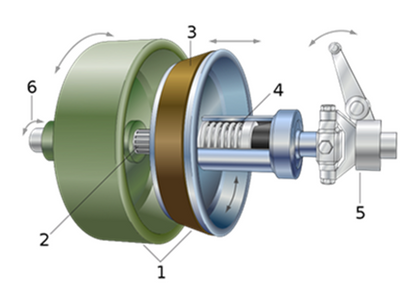common machine components: Springs, fasteners, brakes, bearings, couplings, gears, shafts and rotors
select suitable machine components based on their functional properties
use catalogs of materials and standards to dimension machine components in terms of strength and service life
make assumptions and approximations in the dimensioning of machine components
function decomposition and function modeling
structure problems that lack a clear and concise description
ML1204 Machine Components 6.0 credits
This course will be discontinued.
Decision to discontinue this course:
No information inserted
Products and technical systems typically consist of standardized components. This course applies mechanics and solid mechanics to analyze these machine components and construct simple mechanical systems. The course provides a foundation for designing and choosing appropriate components in different situations.
Information per course offering
Course offerings are missing for current or upcoming semesters.
Course syllabus as PDF
Please note: all information from the Course syllabus is available on this page in an accessible format.
Course syllabus ML1204 (Autumn 2025–)Content and learning outcomes
Course contents
Intended learning outcomes
On completion of the course, the students should be able to:
- identify and describe the purpose and function of commonly used machine components
- analyze and simulate selected machine components from a system perspective
- systematically structure, solve, report and discuss technical issues
- systematic problem solving and solution reporting
Literature and preparations
Specific prerequisites
Completed courses ML1101
Recommended prerequisites
Knowledge corresponding to the following courses; Engineering Mathematics (ML1000), Strength of Materials, GC (ML1201), Engineering Materials and Production, GC (ML1200) och Mechanics, GC (ML1101) or equivalent.
Literature
Examination and completion
Grading scale
Examination
- TEN2 - Written Examination, 4.0 credits, grading scale: A, B, C, D, E, FX, F
- INLA - Assignments, 2.0 credits, grading scale: P, F
Based on recommendation from KTH’s coordinator for disabilities, the examiner will decide how to adapt an examination for students with documented disability.
The examiner may apply another examination format when re-examining individual students.
If the course is discontinued, students may request to be examined during the following two academic years.
Examiner
Ethical approach
- All members of a group are responsible for the group's work.
- In any assessment, every student shall honestly disclose any help received and sources used.
- In an oral assessment, every student shall be able to present and answer questions about the entire assignment and solution.